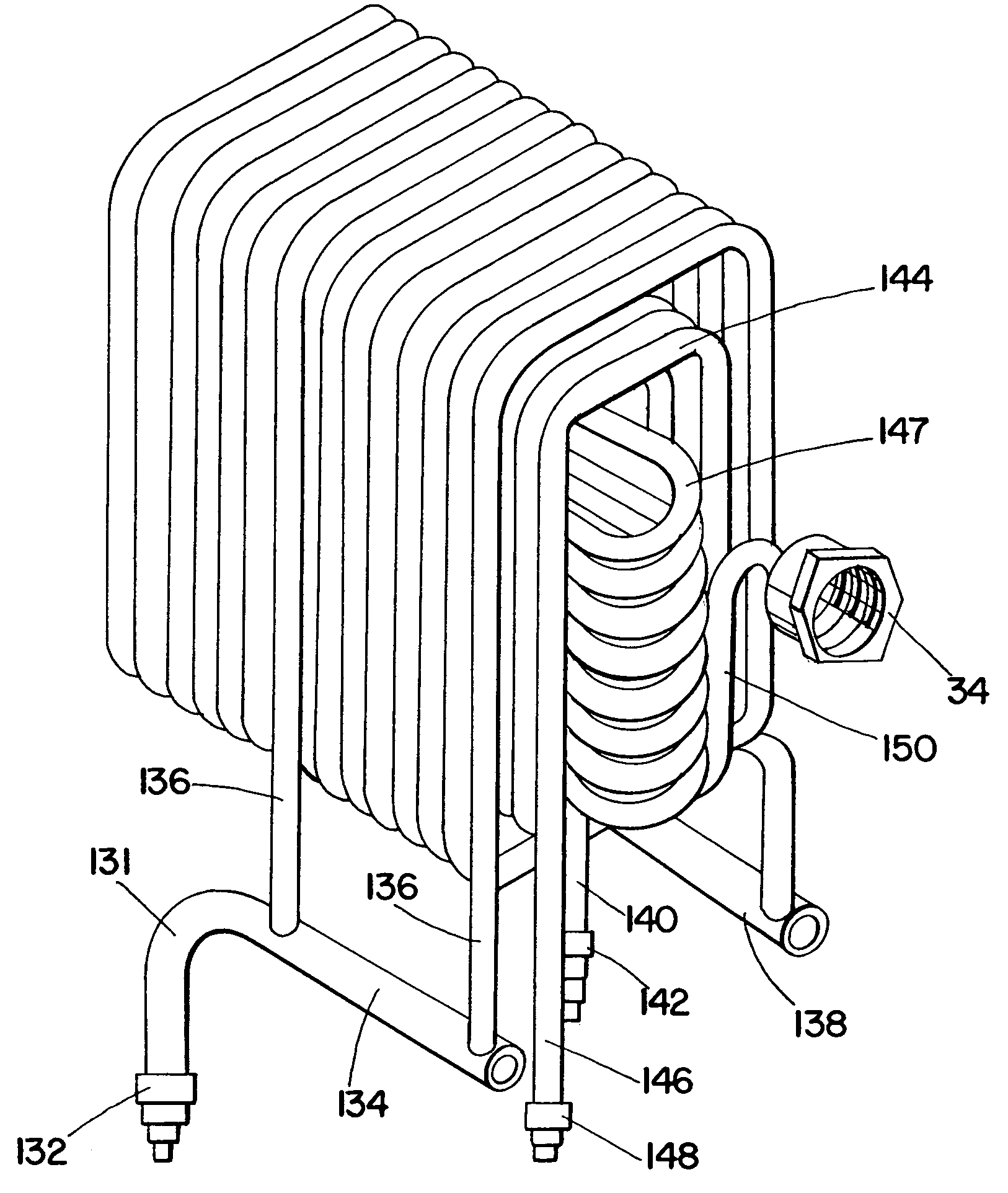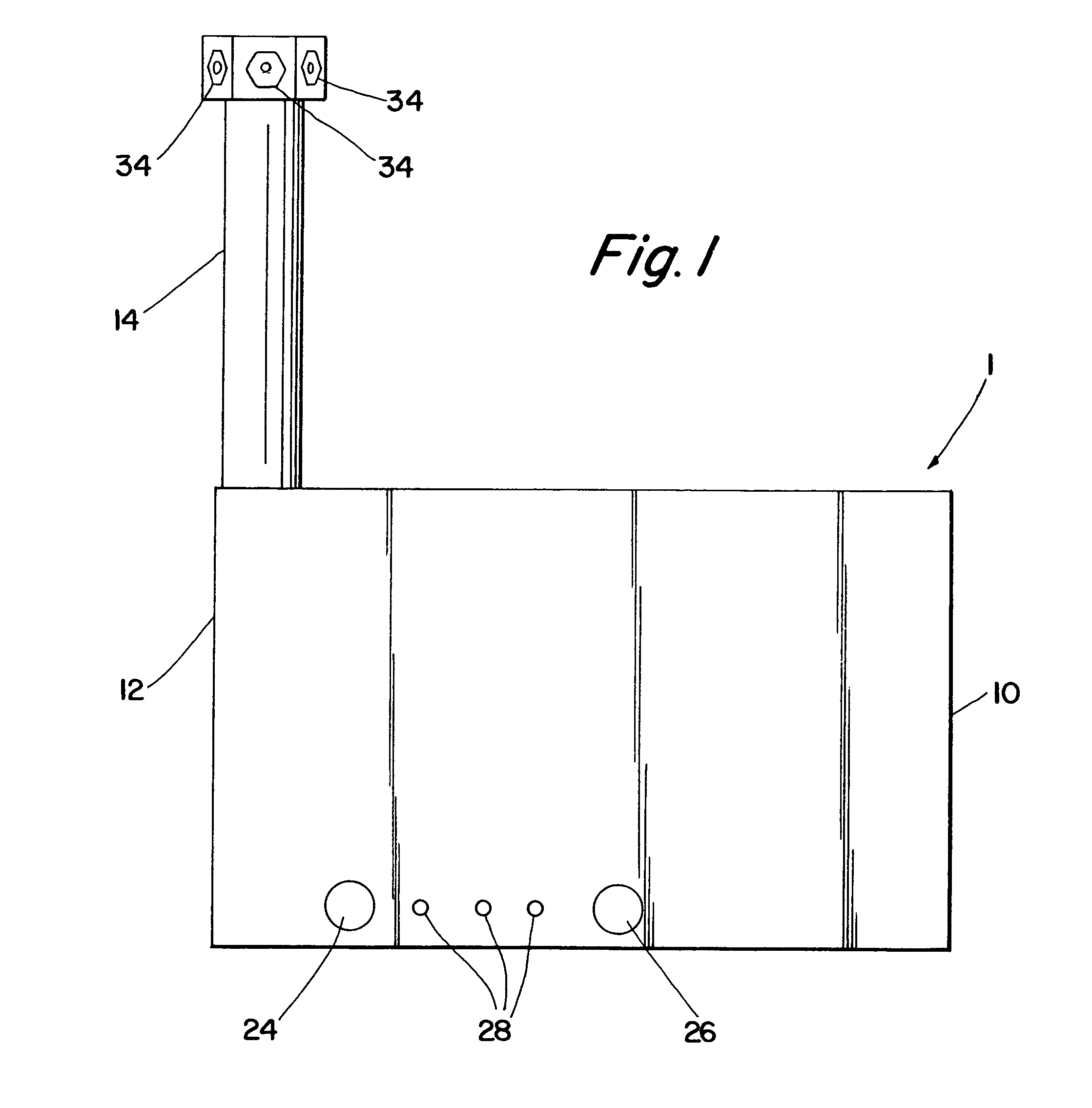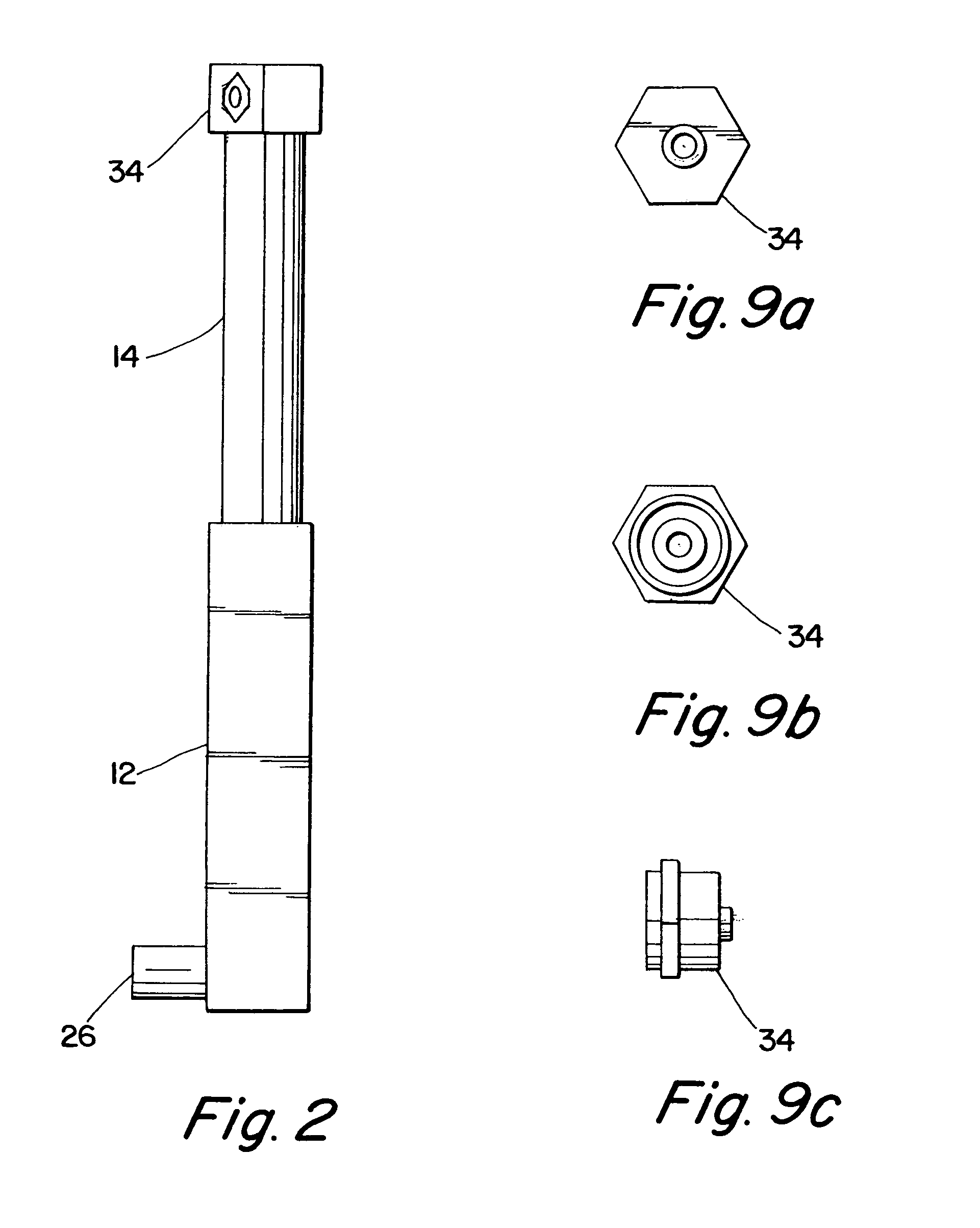Apparatus for cooling fluids
a technology for distributing apparatuses and fluids, which is applied in the direction of domestic cooling apparatus, lighting and heating apparatus, liquid transferring devices, etc. it can solve the problems of reducing affecting the quality of beer, so as to reduce the service requirements of beer dispensing, reduce yeast activity and growth, and avoid the possibility of reheating of cooled fluids.
- Summary
- Abstract
- Description
- Claims
- Application Information
AI Technical Summary
Benefits of technology
Problems solved by technology
Method used
Image
Examples
Embodiment Construction
[0036]In accordance with one aspect of the present invention, there is provided a cold plate unit that includes a coolant system, a fluid system and a metallic unit.
[0037]The coolant system includes a primary inlet manifold, a secondary inlet manifold, a secondary outlet manifold and a primary outlet manifold, and further includes a first plurality of coolant line segments connecting the primary inlet manifold and the secondary inlet manifold and a second plurality of coolant line segments connecting the secondary outlet manifold and the primary outlet manifold. The fluid system is in heat exchange relationship with the coolant system. The metallic unit incorporates the coolant system and the fluid system.
[0038]In a preferred embodiment of the cold plate unit, the coolant system defines a cold plate portion and a tower portion, the cold plate portion including the primary inlet manifold and the primary outlet manifold and the tower portion including the secondary inlet manifold and ...
PUM
| Property | Measurement | Unit |
|---|---|---|
| length | aaaaa | aaaaa |
| length | aaaaa | aaaaa |
| length | aaaaa | aaaaa |
Abstract
Description
Claims
Application Information
 Login to View More
Login to View More - R&D
- Intellectual Property
- Life Sciences
- Materials
- Tech Scout
- Unparalleled Data Quality
- Higher Quality Content
- 60% Fewer Hallucinations
Browse by: Latest US Patents, China's latest patents, Technical Efficacy Thesaurus, Application Domain, Technology Topic, Popular Technical Reports.
© 2025 PatSnap. All rights reserved.Legal|Privacy policy|Modern Slavery Act Transparency Statement|Sitemap|About US| Contact US: help@patsnap.com



